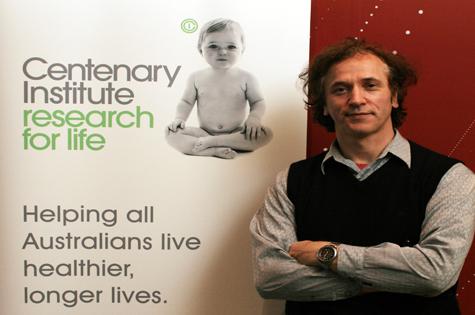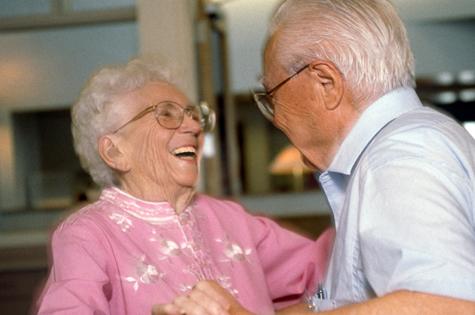At Centenary our vision is to improve human health through excellence in medical research.
We believe that every child has the right to be able to live a healthier, longer life than the generations before them and that medical research is the best way to make this possible.
And there is no hiding from the fact - our population is living longer.
Between 30 June 1992 and 30 June 2012, the proportion of people in Australia aged 65 years and over increased from 11.5% to 14.2%. During the same period, the proportion of population aged 85 years and over more than doubled from 0.9% of the population at 30 June 1992 to 1.9% of the total population at 30 June 2012.1
At Centenary we’ve gathered an exceptional group of international and national researchers and a resource of the latest technologies to advance our research and clinical practice in the field of inflammatory diseases such as cancer and diabetes, and of the disease processes in ageing.
I believe Centenary is one of the most forward-looking research centres in NSW and indeed the whole of Australia in this field.
Last month we shared our advances with the wider international community hosting the inaugural Future of Experimental Medicine Conference with a focus on Inflammation in Disease and Ageing.
Attracting some of the world’s leading researchers, our aim was to bring basic and clinical research together in one room to advance the immense research development and technological innovation potential that is evident in the scientific literature for this area.
I thought our Motherpedia readers might find interest in some of the developments in this field. In this month’s article I share with you a snippet of advances in this area by Professor Josef Penninger, director of Austria’s Institute of Molecular Biotechnology who presented the conference’s Plenary Lecture as well as some highlights of our own research here at Centenary.
We’re living longer. That means that we’re all at greater risk of cancer and we’ll all suffer from bone loss. And for many of us, our final years will be difficult.
But Josef Penninger plans to change all that.
Joseph’s vision is of a future where we can safely surf and live active lives at 85 years of age without fear of fracture, cancer or any of the other scourges of ageing.
More than a decade ago Professor Penninger proved that a protein called RANKL is the master regulator of bone loss. That work led to a new drug now used for treating osteoporosis and skeletal related events associated with cancer.
“Our immune systems are built to see and respond to danger,” he says.
“Inflammation is a key response. But as we get older the immune system’s own inflammatory response starts to cause problems. At the same time the immune system struggles to recognise cancer and respond.”
In his latest work Professor Penninger identified a molecular brake that can turn on so-called natural killer cells, a component of the immune system. This discovery was reported in the international journal of science ‘Nature’ stating that a molecule called Cbl-b stops natural killer cells from recognising and killing cancer cells. By turning that molecule off his laboratory showed that the killer cells could get on with their job and markedly reduce the spread or metastasis of cancer cells.
Inflammation is also a key part of the research at the Centenary, with discoveries of how inflammation is controlled in the skin, in the liver and in blood vessels coming from three laboratories in the last year and will continue to be one of our key focuses in the future.
Medical research in this field we hope will lead to a new generation of drugs to help our immune systems better cope with the challenges of inflammation and ageing, and for a future in which we age healthily then die without years of chronic disease.
Please visit our website www.centenary.org.au for all our latest news and to make an invaluable donation that will contribute to helping us make melanoma less scary. To read the full article on Professor Josef Penninger’s work follow this link to our blog.

Professor Josef Penninger



















__small.png)










